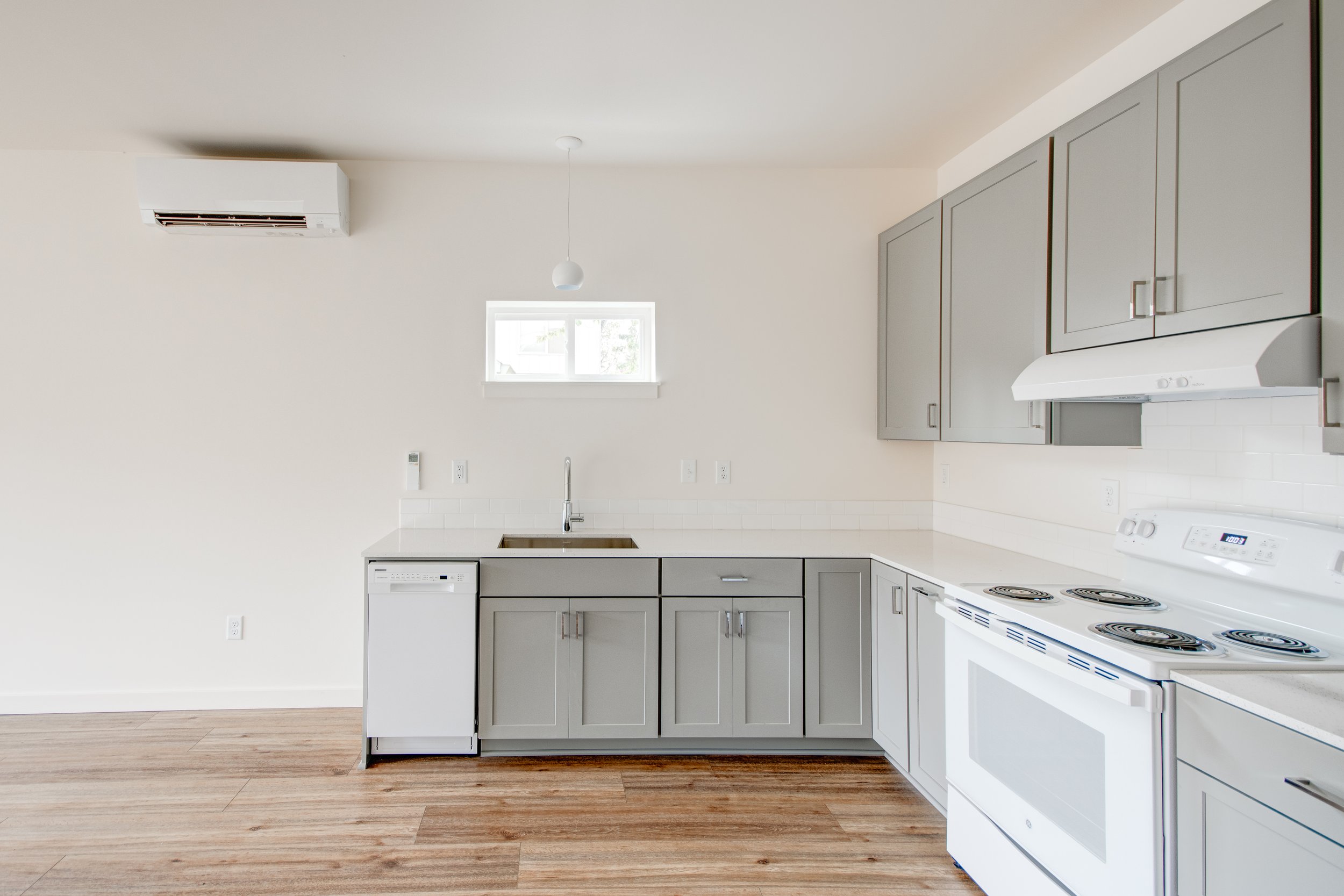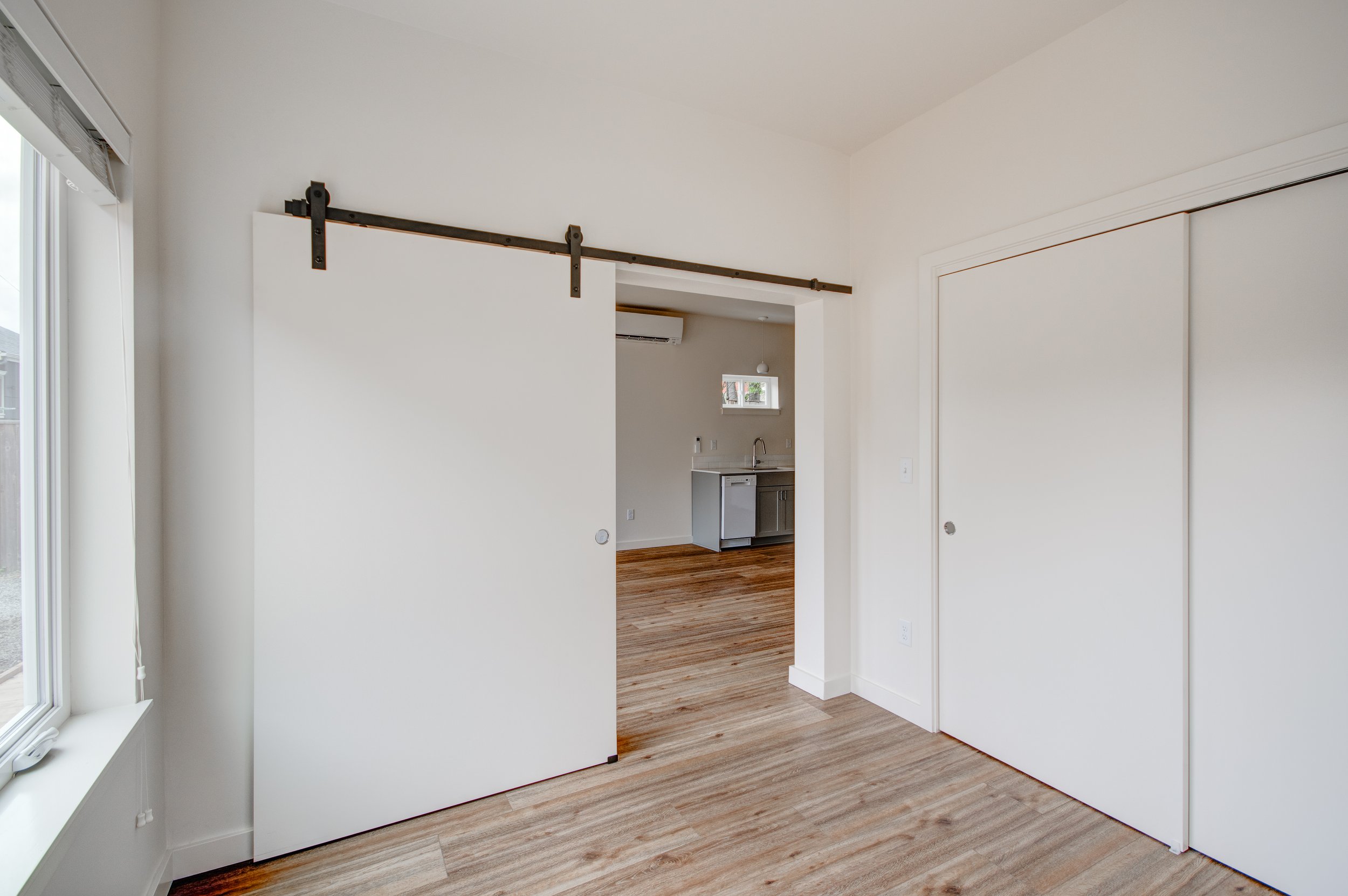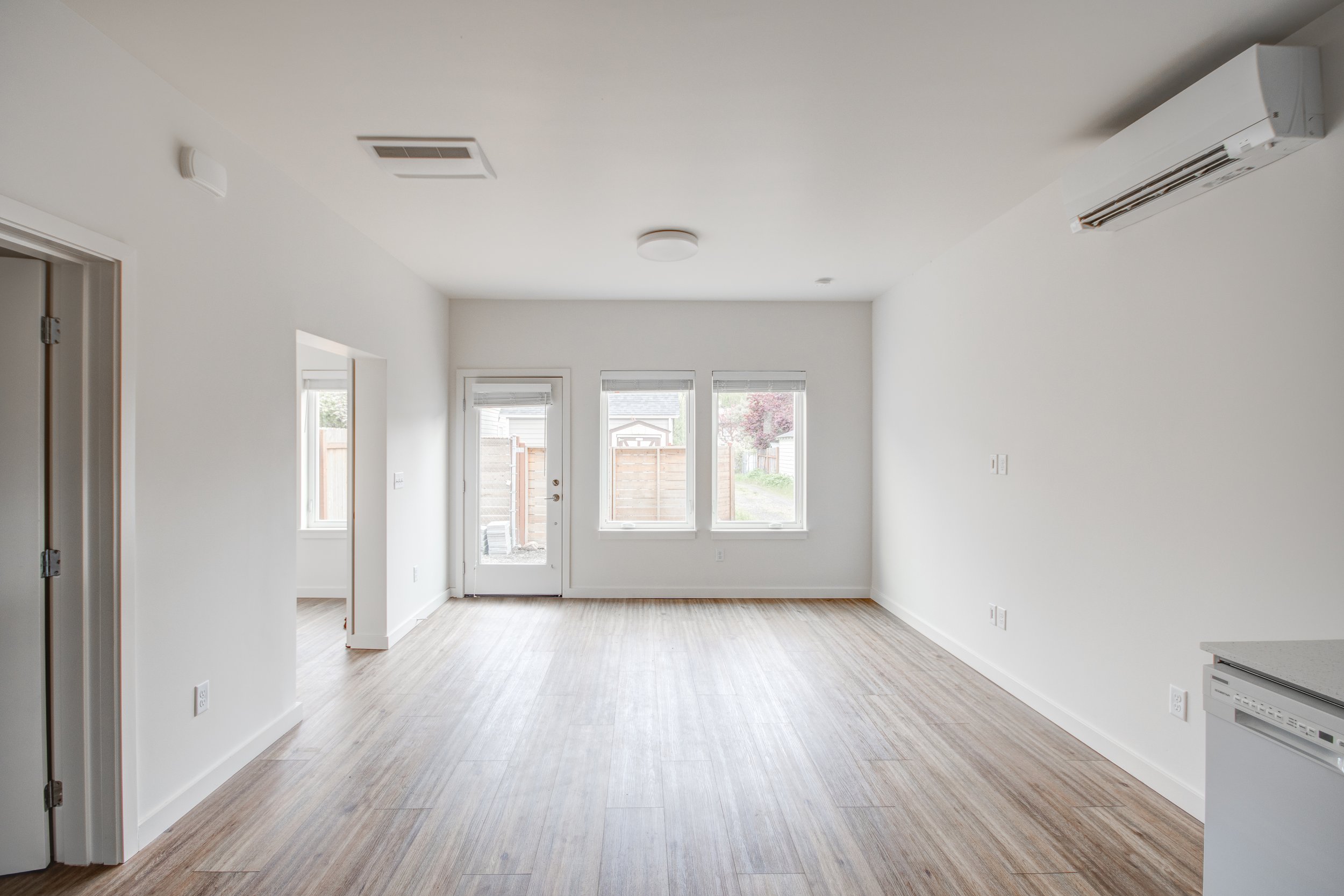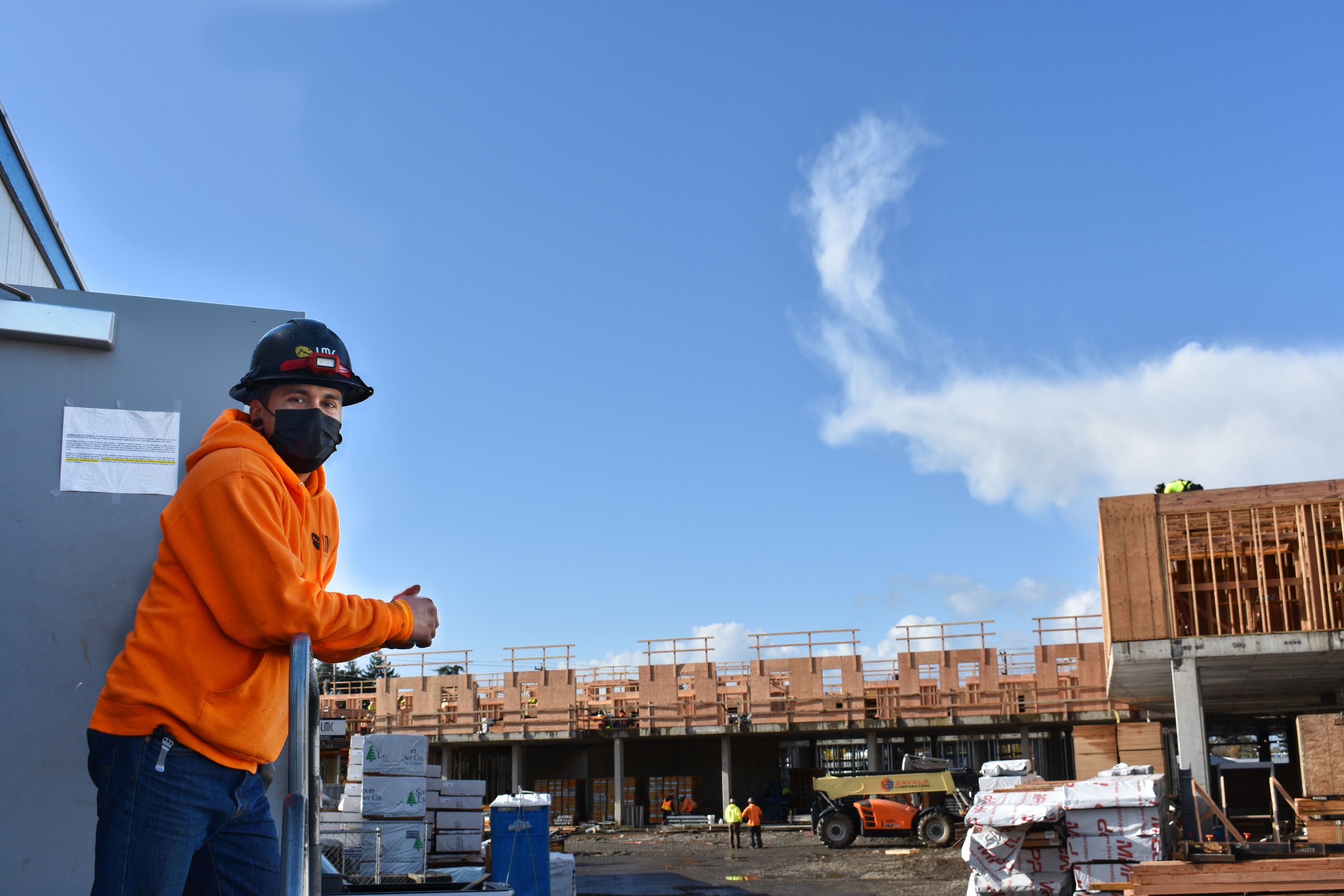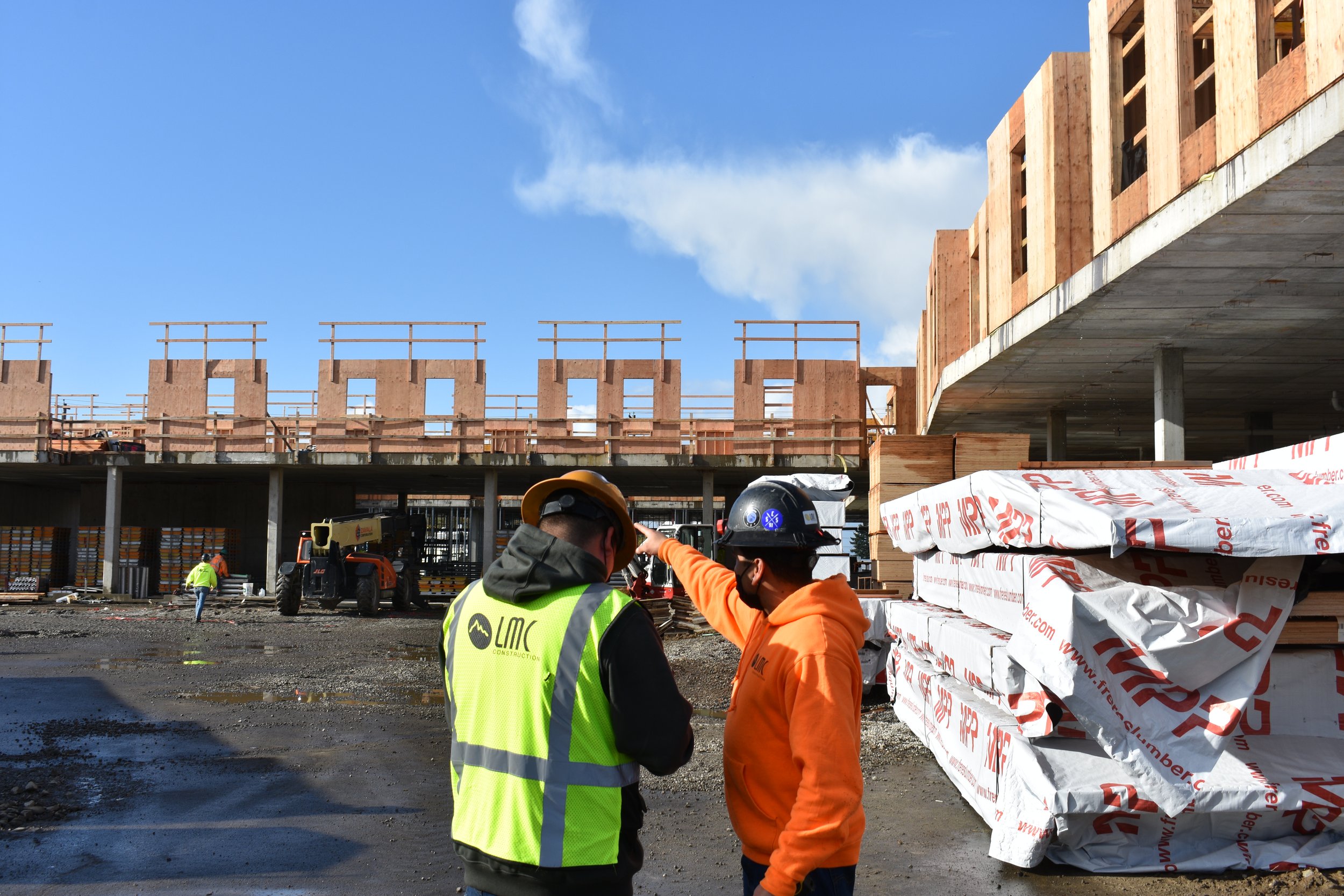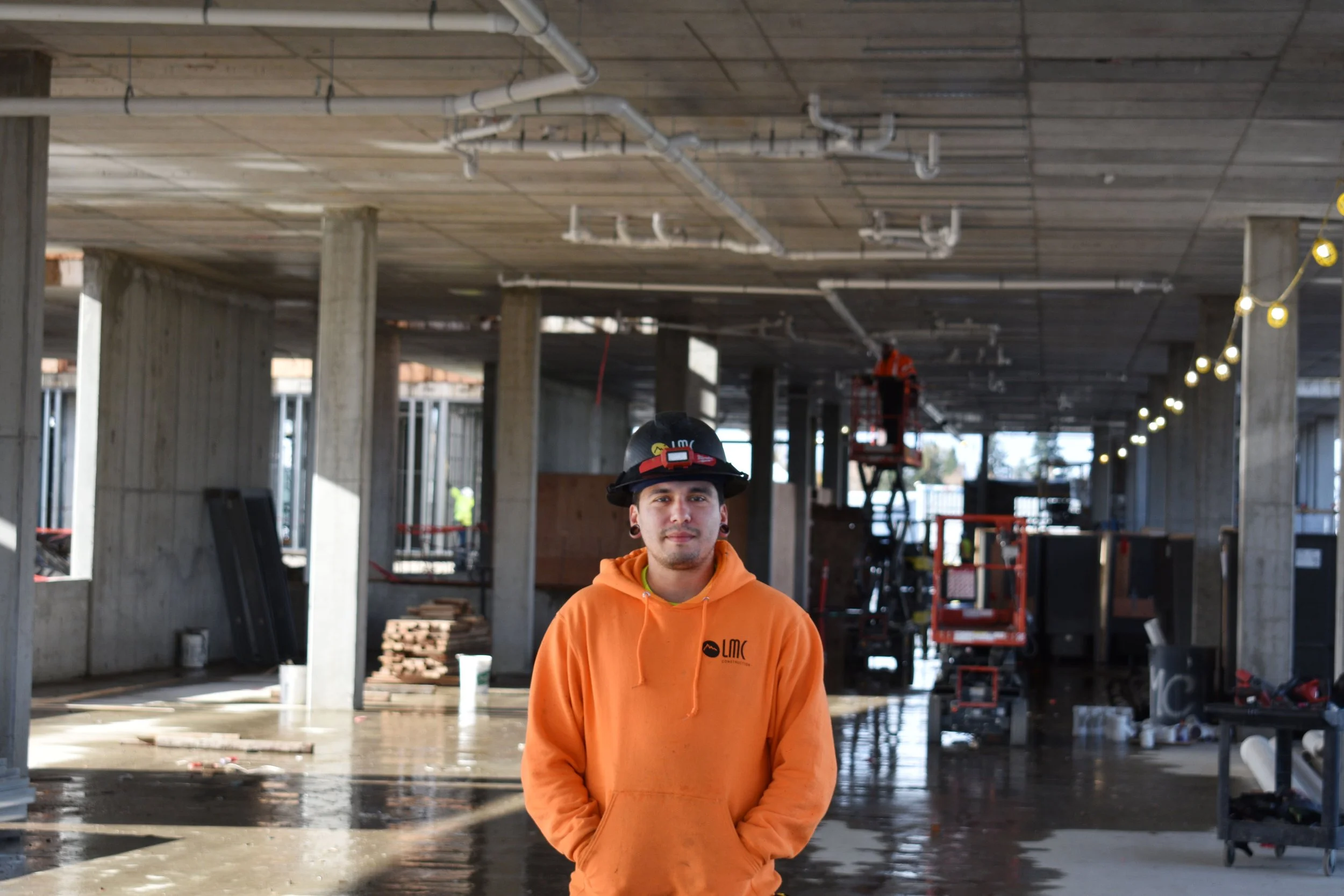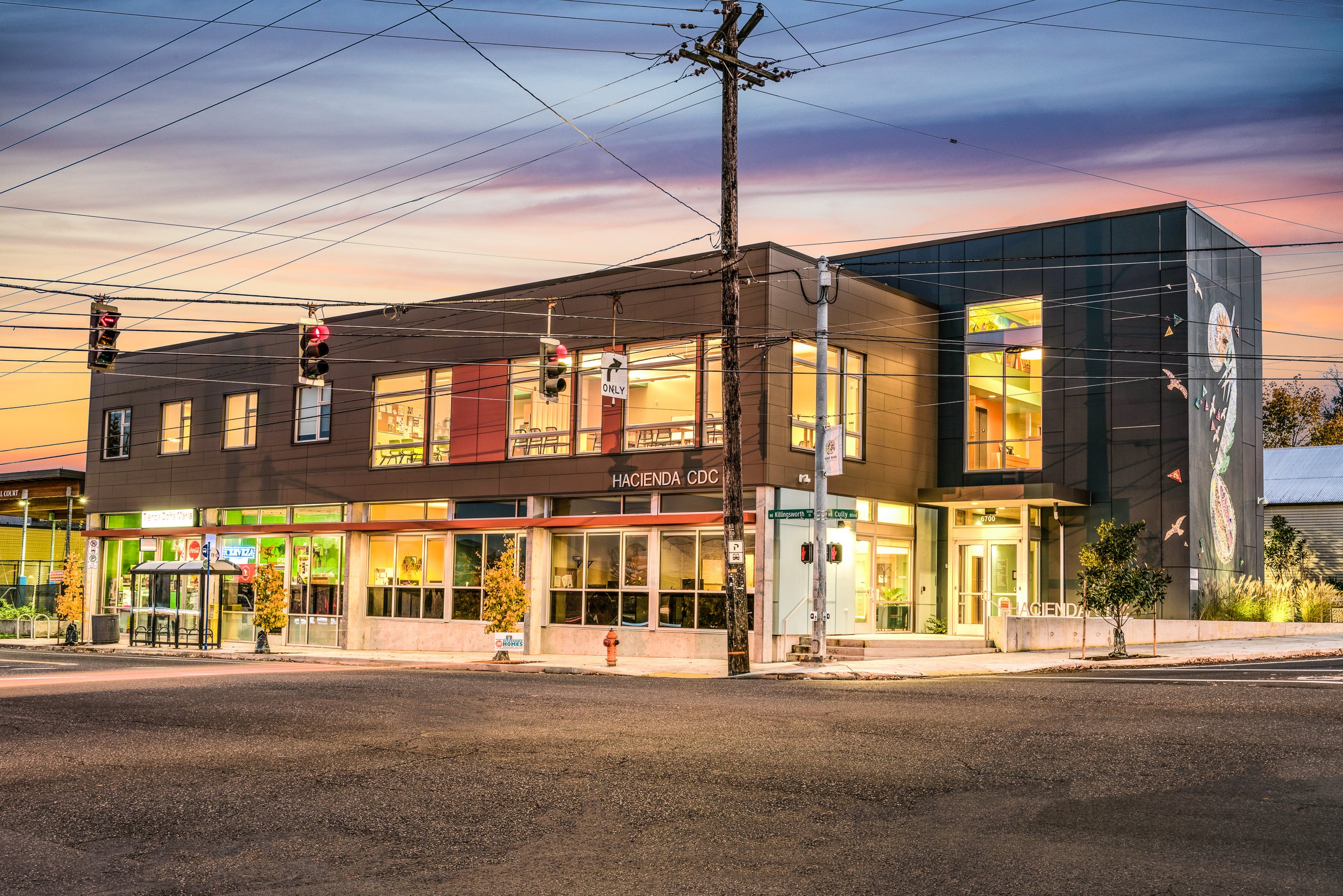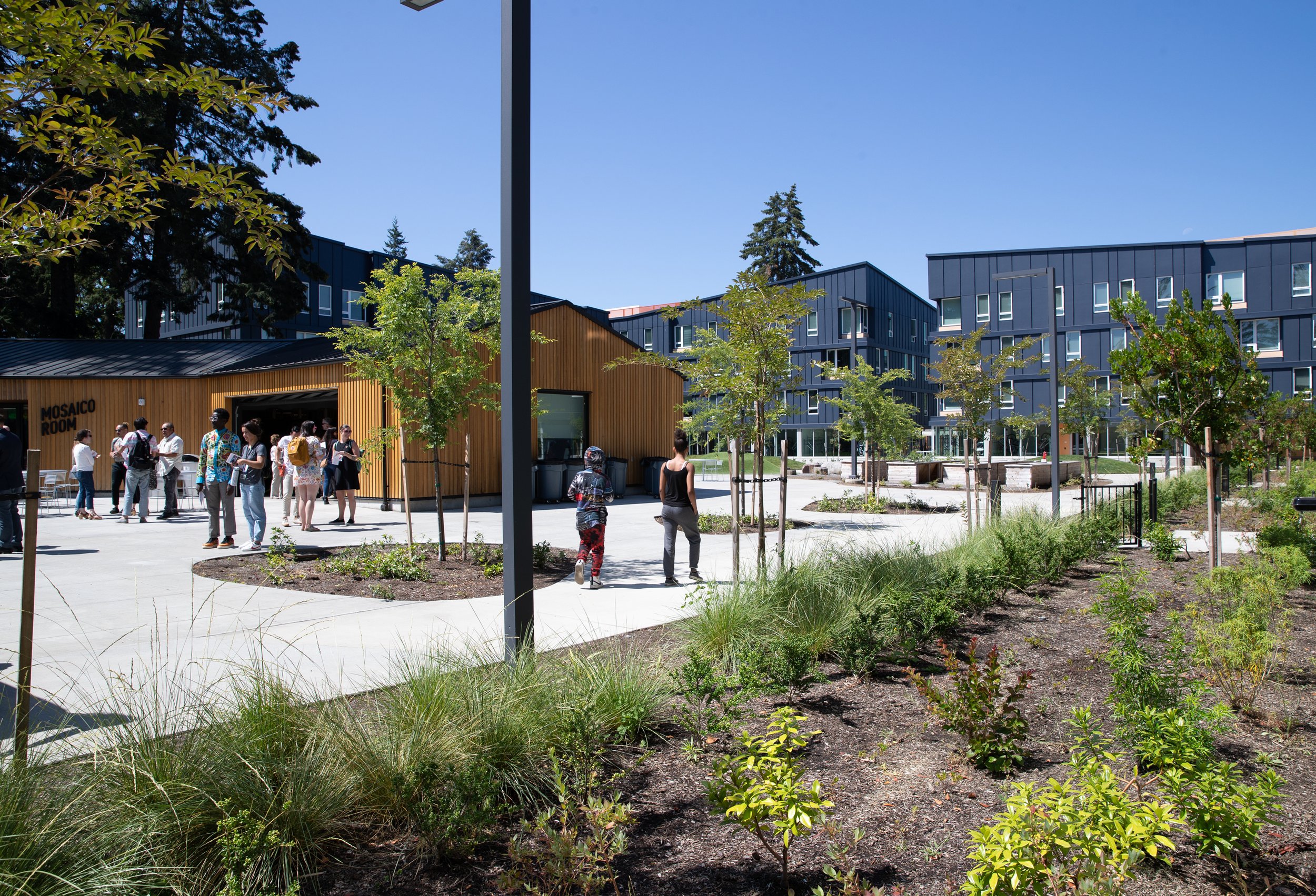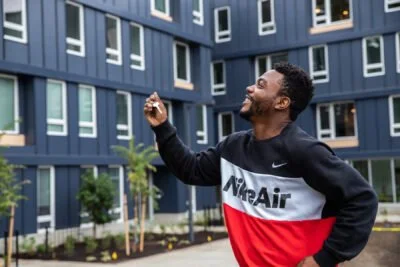The 171-unit community from Hacienda CDC and Community Development Partners is designed for a diverse group of residents of all ages to thrive
Oregon City’s newest community is swiftly taking shape, bringing 171 units of much-needed affordable rental housing with integrated on-site services and support. With a special focus on serving larger families and older residents; agricultural workers employed nearby; and adults and children at risk for or transitioning out of homelessness, the Las Flores development reflects the reality that Oregon’s housing challenges affect a diverse mix of residents in smaller suburbs, cities and towns beyond Portland and Salem. The community expects to welcome its first residents in summer 2023.
This is the second community that is co-owned and co-developed by Hacienda Community Development Corporation (Hacienda CDC), an Oregon-based, Latino-led community building organization with a holistic approach and client-centered services, and Community Development Partners (CDP), a mission-driven affordable housing developer. Together they are helping to fill Oregon’s need for affordable housing with a model that goes beyond providing a roof over people’s heads.
“Las Flores will be more than apartments. This will be a community that provides what individuals and families need to find stability and reach their goals,” said Ernesto Fonseca, CEO, Hacienda CDC. “This will be a place where residents can find after-school and summer programming for their kids, start on a path to buying a home through homeownership counseling, or connect with small business advising.”
“The affordable housing shortage burdens our smaller, more rural areas too, so we’re excited to be taking our successful partnership with Hacienda CDC beyond Portland to serve the diverse communities who live and work in Oregon City and Clackamas County,” said Eric Paine, CEO, CDP. “Las Flores will not only offer a beautiful place to live, but a place where individuals and families can connect and build community.”
The key ingredients of the CDP-Hacienda partnership that make Las Flores a different kind of affordable housing community include:
Community-informed from the start. Before design or construction began, CDP and Hacienda engaged with Salazar Architect and the Center for Public Interest Design (CPID) at Portland State University to conduct a thorough survey of assets and challenges in the surrounding area. This included many meetings with Oregon City community members and organizations, whose input shaped the design of buildings and other spaces at Las Flores and the kinds of services and support that will be available to residents.
A physical campus that promotes health and well-being for all ages. Las Flores has been designed using the people-first, “Communities for All Ages” (CFAA) approach, which embraces the benefits of intergenerational living and creates homes and spaces where all people can be respected, cared for, and given tools to explore their interests. This includes buildings clustered around a park-like gathering space, tree-dotted walking paths, children’s play areas, outdoor picnic areas, a community garden, and a community building with a kitchen and multi-use spaces where residents can hold events, take classes, and enjoy spending time with their families and neighbors.
Integrated on-site services that support families and help them move ahead. As co-developer, Hacienda will offer on-site services to Las Flores residents that help them thrive and pursue goals like getting on the path to homeownership or building a brighter future by starting their own business — including after-school and early childhood education, homeownership counseling, and small business advising.
Significant funding for Las Flores comes from Clackamas County’s share of the Metro Regional Affordable Housing Bond, approved by voters in 2018.
“Across this region, we are in the middle of multiple housing crises,” said Metro Councilor Christine Lewis, who represents District 2, which includes Oregon City. “It may look and feel a little different than downtown Portland, but we're part of all the same problems. We have a lack of affordability, we have homelessness. We have folks who are getting displaced from their current housing and they don't know where to turn.”
Location and residents
At Las Flores, seven attractive, high-quality apartment buildings will encircle a wide-open green space and a community building for events and classes. The 4.5 acre site is northeast of Highway 213 and South Beavercreek Road, where dense retail and housing on Oregon City’s eastern border begin to give way to farmland and rural areas of Clackamas County.
”Achieving the housing progress we seek as a state must mean shared progress for Oregon’s farmworkers and their families,” said Andrea Bell, Director of Oregon Housing and Community
Services (OHCS). “Our economies and communities are strongest when everyone has their basic needs met — this centers our humanity as a state and upholds self-determination, human dignity and respect. Las Flores is yet another manifestation of what is possible when all of us come together in service to our communities.”
Las Flores is designed for low-income families and individuals in the Oregon City area, who are the least likely to find housing they can afford:
Las Flores’ mix of unit sizes (from one to four bedrooms) will allow for small and large households and residents of all ages, especially important given the region’s shortage of 3- and 4-bedroom units.
Residents must earn 30% to 60% of the area median income (in Clackamas County, that’s $31,950 to $63,900 for a family of four).
12 units will be set aside for people who work in the agricultural industry and their families, including those who work on farms, in nurseries, at dairies and on reforestation projects. Clackamas County has the sixth-largest population of migrant and agricultural workers in the state, according to state figures.
9 units will be permanent supportive housing, with services provided by Northwest Housing Alternatives. Those units will be reserved for families transitioning out of NHA’s Annie Ross House in Milwaukie. Nearly 600 people are experiencing homelessness in Clackamas County, and more than 300 of them are unsheltered, according to the most recent Point-In-Time count.
“Through NHA’s Annie Ross family shelter program, we are grateful to have the opportunity at Las Flores to facilitate new affordable housing for families transitioning from homelessness,” shared Trell Anderson, Executive Director of Northwest Housing Alternatives. “Our established working relationship with Hacienda CDC in resident services will translate into seamless programming, long-term housing stability, and support for kids, for all the families making the Las Flores development their home.”
Las Flores is funded by a 4% Low Income Housing Tax Credit (LIHTC) allocation with equity investment by Aegon, OHCS Market Cost Offset Funds, Clackamas County’s share of the Metro Regional Affordable Housing Bond Funds administered by the Housing Authority of Clackamas County, Agriculture Workforce Housing Tax Credits, and a Section 8 contract for 70 project-based vouchers. Construction financing is being provided by US Bank and permanent financing is being provided by Citi. The project was designed by Salazar Architect and is being built by LMC Construction. Guardian Management will be the property manager.
Video note: CDP and Hacienda CDC created a highlight video to show the Las Flores site, with interviews from partners and supporters, including Lewis (Metro), Bell (OHCS), Oregon City Mayor Denyse McGriff, Bryan Guiney (U.S. Dept. of Housing and Urban Development) and Clackamas County Commissioner Martha Schrader.
About Hacienda CDC
Hacienda CDC is a Latino Community Development Corporation that strengthens families by providing affordable housing, homeownership support, economic advancement, and educational opportunities. Hacienda owns 381 affordable housing units in North and Northeast Portland and Molalla, providing safe, stable homes for over 1,500 individuals each year, over half of whom are children. Hacienda embraces a holistic approach to development with programs in Community Economic Development, Homeownership Support, and Youth and Family Support Services.
About Community Development Partners
Founded in 2011, Community Development Partners develops and operates sustainable, life-enhancing affordable housing with a focus on long term community engagement and innovative design. As a mission-driven, forward-thinking organization, CDP is focused exclusively on creating vibrant affordable housing communities that incorporate art, public parks, gardens, fresh food, and cultural and social programming. Today, CDP has successfully built or preserved 44 unique projects comprising over 3,500 units throughout Oregon, California, Nevada and Arizona.





















